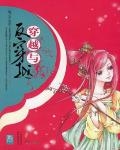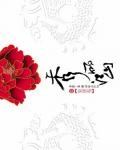Volume 3: The Land of Jingchu Chapter 274 Xu Rong
"Grand Historian...Xu Rong?" Bai Tu looked at the list in his hand curiously.
As for the stargazing that the Grand Historian is in charge of, Bai Tu has always felt that its development towards divination would undoubtedly lead to a deviation in astronomical observation.
However, there is no . The most we can do is to hire more "idle people"... Besides, the people in the Taishi Bureau are not "idle people". At least they still have the function of determining the solar terms, and in the future we can let them learn simple weather forecasts.
During the Western Han Dynasty, Dong Zhongshu combined some theories of Yin-Yang School and established the Confucian version of the theory of the correspondence between heaven and man. From then on, astronomical observations began to be closely linked with the quality of governance and the fortune of the dynasty.
Xunzi's "The way of heaven is constant, it does not exist for the sake of Yao, nor does it perish for the sake of Jie" has become an outdated idea...
The most recent and most famous political turmoil caused by astronomical phenomena was at the end of the Western Han Dynasty, when the ominous sign of "Mars in the heart" appeared during the reign of Emperor Cheng. As a result, the emperor forced the then Prime Minister Zhai Fangjin to commit suicide in order to shift the blame.
However, for Bai Tu, this is not something to worry about in the short term - astronomical phenomena are ultimately just an "excuse" used by others.
The current General's Mansion cannot be shaken by a single astronomical phenomenon, and even if the most famous "Mars in the Heart" appears, the Historiography Bureau must find a way to explain it better, or directly accuse the court of Xudu of misconduct. It is impossible to restrict Bai Tu simply because of the astronomical phenomenon.
For example, the Western Han Dynasty was already in chaos, and Zhai Fangjin was a master of political struggles and came to power. In the end, he got himself involved in the political struggle. It can only be said that those who fight others will always be fought by others.
The First Emperor died in the year when Mars appeared in the heart, but... before his death, did anyone dare to say that the Mars in the heart was a bad omen?
Bai Tu was surprised because, symbolically speaking, for such an important department, Lu Kang actually recommended a woman?
Is Lao Lu's ideological realm getting higher and higher?
"The art of observing the sky has always been a taboo in the court, and it is profound and obscure. Although Xu Rong is a woman, she is now considered the most proficient in this art among those who know everything about her in Jiangdong." Lu Kang said righteously.
Bai Tu nodded upon hearing this - it was important to know one's ins and outs. Bai Tu himself did not believe in the connection between heaven and man, but it would also be a terrible thing if someone who talked nonsense was put in this position.
For example, Ni Heng...
If anyone dares to let him be the Grand Historian, he will ruin the peaceful and prosperous times.
"Knowing everything" means not talking nonsense, and the observed celestial phenomena must serve the overall situation.
"Well, that's fine. But Zi Bu and the others won't have any prejudice against the matter of the female official, right?" Bai Tu asked.
Lu Kang's face straightened when he heard this, "Women are also citizens of the General's Mansion and can serve the country. If anyone dares to have any prejudice, impeach him in front of the Censorate! I will also be the first to argue with him!"
Bai Tu was also very pleased to see that Old Lu's realm of thought had improved so quickly - as expected, Old Lu was different from those flirtatious people. Recently, there have been some rumors outside that the female officials appointed by Bai Tu were all reserved for himself...
The thoughts are so dirty and greasy that it is simply disgusting. Someone as pure as Bai Tu cannot bear to hear such things.
What they said makes sense... Those who spread these rumors should really be sent to Lu Kang's house and let Old Lu give them a lesson!
"Well, we can start implementing the Bureau of Astronomy and the Bureau of Imperial Envoys. But the Bureau of Shaofu... is a bit redundant. It's just to manage the expenses of the mansion, and now only a few housekeepers and accountants are working on it." Bai Tu had some opinions about the Bureau of Shaofu.
To put it simply, Shaofu was responsible for managing the emperor's private treasury.
After all, the Chuhou Mansion was not the imperial court. In order to show that it still respected the Han Dynasty, each department was just called a "bureau". However...including the Shaofu Bureau, it was obviously set up according to the standards of imperial court offices. There were special officials for all the departments, from those in charge of all kinds of craftsmen, those in charge of shapes, those in charge of gardens and villas... to those in charge of carriages and horses, those in charge of candle carving...even those in charge of horse bridles.
"My lord, what you said is wrong. If the Chu state were to be established, there would be countless eunuchs and palace maids in the palace. If we compare it with the Han Palace during its heyday, the financial complexity would be no less than that of a county. Moreover, it is the center of the country, with intertwined interests, which cannot be regarded as the same as it is now." Lu Kang said.
"I don't plan to do a major renovation on the Chuhou Mansion in the future. Hasn't the construction of the palace been postponed several times? Frugality is secondary. The main thing is that we have advocated the ban on private slaves for two years. How can I make an exception for myself? As for the eunuchs, we should follow the examples of the Western Han and pre-Qin dynasties. We will no longer have castrated slaves and abolish the selection process." Bai Tu said.
In the pre-Qin period, only a few eunuchs were castrated. For example, Shu Diao, the ancestor of eunuchs and treacherous ministers, was a eunuch of Duke Huan of Qi. The reason he was favored was because he castrated himself to express his loyalty...
When Guan Zhong was dying, he was trying to persuade Duke Huan of Qi that a man like Shu Diao didn't even take care of his own body, so how could he expect him to take care of others?
However, in the end, Duke Huan of Qi still felt that Shu Diao was loyal. Together with another cook named Yi Ya who steamed his own son and fed him to Duke Huan of Qi, Duke Huan of Qi chose to trust these two loyal ministers. In the end, Shu Diao starved to death in the palace, and no one collected his body for two months.
Shu Diao was able to gain trust by castrating himself, which shows that only a minority of eunuchs were castrated at that time.
Until the Western Han Dynasty, some eunuchs were healthy people. It was not until the Eastern Han Dynasty that all eunuchs began to be castrated.
Palace maids are female servants in the palace. In the pre-Qin period, they were mainly family members of prisoners and prisoners of enemy countries. After the unification of the Han Dynasty, palace maids began to be selected from the public...
Moreover, there was no clearly defined procedure for releasing palace maids in the Han Dynasty. Occasionally, the emperor would issue an edict to release a group of older palace maids who met the requirements when he felt that there were too many people in the palace, the atmosphere was too negative, or that a new face was needed.
Therefore, the situation was worse than that in the Ming and Qing Dynasties. For example, Emperor Ling, who was severely scolded by Zhuge Liang and Liu Bei, was even so licentious that he ordered the palace maids to wear open-crotch pants.
In short, he was the royal family's private slave.
Bai Tu has always advocated hiring people instead of private slaves, and although there has been no severe crackdown,... after the Ministry of Justice revised the relevant laws several times, the "indenture" that the government will now protect is only limited to a maximum of ten years.
As for indentures that are valid for more than ten years or even for life... I'm sorry, if you really escape, the government will not do anything. On the contrary, if you find acts of private torture, once it is reported, the Ministry of Justice will also handle it.
Of course, the enforcement of this is not good.
Before revising the law, Wang Lang mentioned to Bai Tu that even if such things were written down, they would probably be difficult to control.
However, Bai Tu meant that no matter whether it could be controlled or not, it had to be finalized in the law first. Perhaps no one would report lynching for the time being, and with the means used by the aristocratic families, they could not rely on the government to prevent escaped slaves, but... Bai Tu had to at least make sure that lynching was illegal first.
For these aristocratic families, the worst that could happen is that they would sign another ten-year contract after ten years . Even ordinary people would not have the concept of "taking legal action", let alone private slaves, who would not go against the general's mansion because of such a small matter.
As for when it will be implemented... we can wait and see, and we won’t search for people door to door right away.
But at least Bai Tu himself wanted to set an example. Even if he really got promoted to the Marquis of Chu or founded a marquisate in the future, he would not resort to eunuchs or the lifelong system of palace maids.
Even if the Emperor of Han feels that Bai Tu is virtuous and must give up his throne in the future, it will still be the same.
Secondly, there are the staff members that Bai Tu often meets. Regardless of whether they are in the same mind as Bai Tu on this matter, at least they cannot have private slaves at home, otherwise... it is probably equivalent to working at KFC, even if you like the meal from McDonald's next door, you can only eat it privately at home and cannot buy it and show off in front of the boss.
For example, in Lu Kang's family... Lu had many private slaves, but for Lu Kang's lineage, including his son who did not split up, the servants in the family were all contracted to a ten-year contract.
"My lord is benevolent." Lu Kang complimented, but his tone was neither approval nor opposition. It can be seen that Lu Kang always supports this... only subjectively.
After all, the emperor’s etiquette and honor are not only for enjoyment, but more importantly to reflect his majesty!
If it can be digitized, we can see that the "majesty" of the ruler at this time is directly correlated with the people's obedience.
Lu Kang understood this, but just like before, he chose to believe that Bai Tu could eliminate this drawback , so even if he did not support it, he would try his best to help Bai Tu reduce some resistance and wait and see the results.
Regarding the positions proposed by the Ministry of Rites and the Ministry of Personnel, except for the Shaofu Bureau which was sent back for revision and needed to be drastically reduced, Baitu agreed to most of the other positions. As for the specific recommended candidates, there have not been too many corrections for the time being.
Today, Bai Tu is no longer in his prime, and he is still a virgin. Even if the Ministry of Personnel or the Ministry of Rites show some favoritism based on personal relationships in this regard, they will not fool Bai Tu.
Now, among the six ministries, even the Ministry of Revenue, which was originally left to them in order to appease the aristocratic families, can now see many figures from poor families and foreign nobles.
For example, the Imperial Envoy Bureau, which is responsible for supervising and reporting on subordinates, has reserved a large number of positions for children from poor families, because it is easy to imagine that if the Imperial Envoy Bureau dares to release children from aristocratic families, Bai Tu will definitely hold them directly accountable.
Even so, Bai Tu had no objection to the main officials, especially some he was not familiar with before, but he would definitely meet them later, and also ask Feng Wei to provide a rough estimate of their reputation.
Bai Tu also found out the next day that this Xu Rong was not only a girl, but also... only sixteen years old!
Originally, when Lu Kang said that Xu Rong was good at stargazing, Bai Tu had already imagined the image of an "old witch"...
After all, the means of astronomical observation in the Eastern Han Dynasty were limited, and basic principles were missing. At the same time... it was combined with some weird theories. How can it be described as "obscure and difficult to understand"?
To be considered good at stargazing, one must have been immersed in it for at least 20 to 30 years, right?
"Sixteen years old... Is there a rumor among the people that she is good at stargazing?" Bai Tu asked.
"That's right. Many people in Fuchun County and even in Wu County have heard about this. In addition, his character is also known to be quite strong and smart." Taishi Ci reported.
Public opinion may not be credible, especially for the gentry who have not entered officialdom. Creating public opinion is just like the creation of personalities by artists in later generations.
but……
It is rare for women to be characterised as "strong" or "intelligent", so Taishi Ci felt that it was quite credible. On the contrary, if it was some kind of evaluation like "virtuous and gentle", Taishi Ci would probably not specifically mention it.
"Well, since she was recommended by Mr. Lu, I think he has some confidence in her in all aspects." Bai Tu nodded.
Because her full name has not been recorded in history, Bai Tu did not immediately think that this Xu Rong was Sun Yi's wife, "Mrs. Xu".
In history when there was no white rabbit effect, "Mrs. Xu" also did something big.
Not long after Sun Yi succeeded his uncle Wu Jing as the prefect of Danyang, when Sun Quan was leading his troops to attack Huang Zu, two generals of Danyang, Gui Lan and Dai Yuan, were dissatisfied with Sun Yi's plan to replace the old bureaucrats of Danyang, so they ordered assassins to kill Sun Yi at a banquet.
Madam Xu not only led people to hunt down the assassin, but also when Gui Lan took control of Danyang and seized Sun Yi's other concubines, preparing to plot against Madam Xu, Madam Xu pretended to be submissive and used the excuse of mourning for Sun Yi for several days, while contacting Sun Yi's confidants...
After the mourning period was over, Mrs. Xu deliberately changed out of mourning clothes and put on a smiling face to make Gui Lan relax his vigilance. Finally, when Gui Lan came to see her, she used both swordsmen and axes to chop him into meat paste, leaving only his head to offer sacrifice to Sun Yi.
In the novel, Luo Guanzhong praised her in a poem: "She is a man of both talent and integrity, and she is the only one in the world. She is treacherous and rebellious, and she is destroyed in one fell swoop. A mediocre minister follows a traitor and a loyal minister dies, but she is not as good as a woman from the Eastern Wu!"
It can be said that this also contains some of Luo Guanzhong's subjective resentment towards the "Han ministers".
From Dong Zhuo, Li Guo, to Cao Cao, Cao Pi...
Faced with the powerful ministers who threatened the Han Emperor, there was no shortage of mediocre ministers who followed the enemy, and even loyal ministers who were willing to die for their country, but in comparison, they were not as good as Madam Xu, a woman.
If Mrs. Xu had followed Gui Lan's coercion, her helplessness could be understood and she could not be blamed for the incident, but no trace would be left in the history books. If she had died while maintaining her chastity, she would have become a symbol of a chaste and heroic woman, and would have been very popular especially in the Ming and Qing dynasties. However, such heroic women are just pebbles in the long river of history and there is no shortage of them.
However, Mrs. Xu's courage and wisdom made her status infinitely elevated...
"Have you found out who spread the rumor about me?" Bai Tu asked specifically.
Although it was not explained in detail, Taishi Ci knew that it was talking about the "scandal" about the female official.
Taishi Ci said with difficulty: "I can't find out where it came from, but... the original version said that this was Mr. Lu's speculation..."
Bai Tu was furious when he heard this: "These people are so shameless. Not only did they question my character, they even framed Mr. Lu. People are really corrupt!"
"My lord, do you want a detailed investigation?" Taishi Ci asked.
"Forget it... There's no need to make a big fuss over such a small matter." Bai Tu said with restraint.
He knew that what Taishi Ci called a "detailed investigation" did not mean Taishi Ci's own efforts, but was done with the help of other means, such as interrogation by the Ministry of Justice.
After all, it was just a rumor with no significant impact. The rumors in the Central Plains and Jingzhou were much more exaggerated than this, and Bai Tu was not spared any of it...
The eyes of the masses are sharp. Before, Bai Tu thought Xu Rong was "Madame Rong" and wanted to employ her anyway. Now he suddenly found out that she was a sixteen-year-old girl. Bai Tu was also surprised, but no one can blame Bai Tu!






